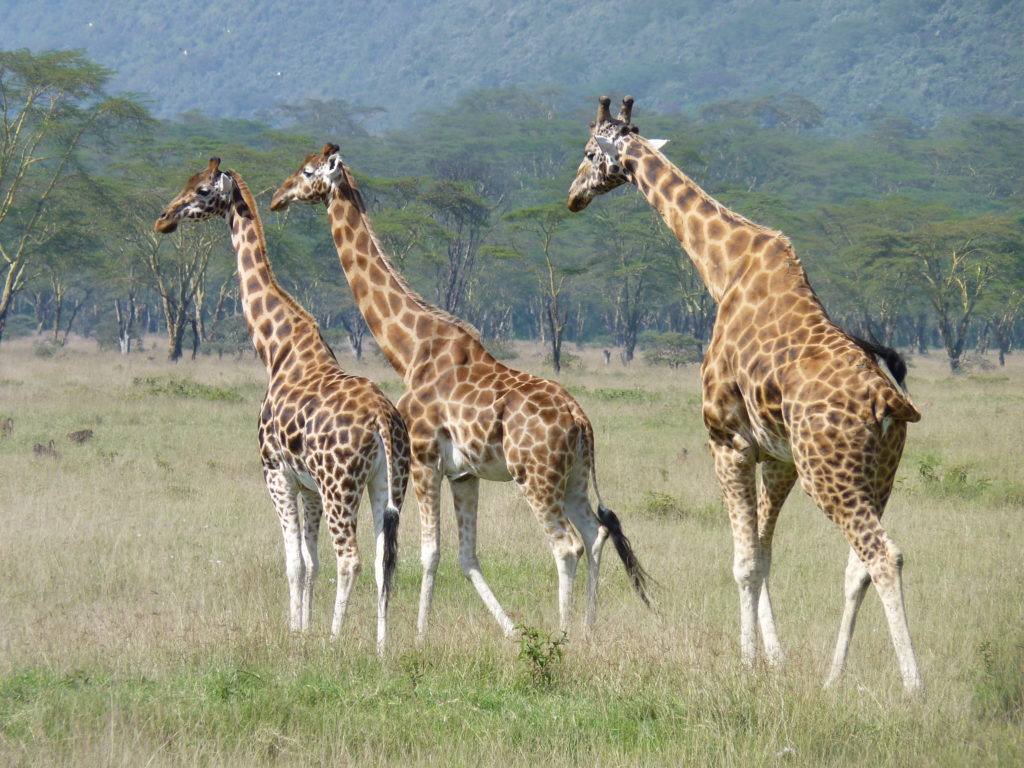An investigation by the Campaign to Ban Trophy Hunting reveals how the trophy hunting industry set up a conservation group as a front to persuade relevant authorities to allow hunting of threatened wildlife.
The group, Conservation Force, is funded by hunting interests and has gained access to Convention on International Trade in Endangered Species (CITES) meetings, sat in on key International Union for Conservation of Nature (IUCN) committees, and influenced a number of major decisions impaccting threatened wildlife.
Conservation Force’s lawyers successfully challenged a ban on elephant trophy imports from southern African countries, and helped defeat an international proposal against lion hunting. The organizations is also currently opposing moves to protect endangered giraffes, previously lobbied for polar bear trophies to be allowed, and defends the continued hunting of leopards and a rare species of zebra. In the wake of the killing of Cecil the lion, Conservation Force sued Delta Airways for refusing to carry hunting trophies, and sued the state of New Jersey for refusing to allow hunting trophies to come in through its ports.

Conservation Force is currently advocating against protections for endangered giraffes. Image credit Kim Bartlett – Animal People, Inc.
Conservation Force is led by John Jackson, a former President of Safari Club International, the world’s biggest hunting lobby group, who has himself been on dozens of ‘big game’ hunts.
The Campaign to Ban Trophy Hunting has unearthed interviews in which Jackson says killing elephants is “the most intimate, real relationship one can have with elephant. Nothing else in life is more satisfying than an elephant hunt”.
Jackson has also described shooting lions: “I can plainly see the African lion that has leaped into the air the moment its head snaps backward and explodes with smoke from my bullet.”
Eduardo Gonçalves, founder of the Campaign to Ban Trophy Hunting, said:
Hunting lobbyists are presenting themselves as conservationists. It is part of a concerted effort by the industry to peddle the lie that shooting animals for sport is conservation.
Conservation Force lobbies and litigates to block, strip and reduce protections for animals that hunters like to shoot. It has filed over a dozen legal challenges to conservation laws, and is demanding that the status of vulnerable wildlife be downgraded to make it easier for hunters to kill them and bring the trophies home.
It wants to deregulate conservation and liberalize laws that protect wildlife. It wants the number of animals that can be hunted, and the places they can be hunted, to increase. To do this it promotes the supposed ‘conservation benefits’ of the trophy hunting of lions, leopards, zebras, and rhinos.
Conservation Force’s board includes leading trophy hunters. Their sponsors are firms connected with the trophy hunting industry. Their donors include hunting groups whose interests Conservation Force has promoted at CITES meetings. The group’s leader, John Jackson, has been on dozens of big game hunts, shot multiple elephants, and has a personal trophy room filled with stuffed zebras, giraffes, bears, and cougars. He has traveled the world giving talks to pro-hunting audiences on how to build ‘public acceptance’ for ‘sustainable use of wildlife.’
Conservation Force’s agenda has nothing to do with conservation. In the era of supposed ‘fake news,’ Conservation Force is the ultimate Orwellian misnomer. Its mission is to defend hunters’ so-called rights.
Institutions and individuals who have succumbed to this organization’s charms need to wake up. There are serious questions to be answered by CITES and IUCN about how trophy hunting interests have been allowed to work their way into the heart of decision-making processes, further threatening vulnerable wildlife. Organisations like Conservation Force should be barred from participating, not feted.
We’re facing a global extinction emergency with up to 1 million species under threat. They include some of the hunting world’s favorite targets. Thanks to the industry’s lobbying efforts, and the naivety of officials at CITES and IUCN, a cruel colonial pastime has successfully persisted to the present day and is compounding the crises facing endangered animals.
If trophy hunters really are interested in conservation, they should forfeit the huge amounts of money they pay to go on luxury hunting safaris to kill animals for entertainment and instead donate that money directly to genuine conservation work.
The Campaign to Ban Trophy Hunting has published figures showing that CITES has permitted international trade in trophies of tigers, black rhinos and species that have already gone extinct in the wild, such as the scimitar-horned oryx and the Arabian oryx, which was wiped out by hunters in 1972.

A trophy hunter poses with a scimitar oryx she killed. This species is extinct in the wild. Image credit Lynae Zebest, CC BY-SA 3.0.
It is prohibited under CITES to trade ‘Appendix I’ listed species unless there are exceptional circumstances. However these restrictions do not apply to trophy hunters, as trophy hunting is considered by CITES to be a non-commercial ‘sport’ and is therefore exempted.
Trophy hunting of some critically endangered species has seen a surge in popularity. Records of critically endangered black rhino trophy hunting show 11 were taken in the 1980s, 2 in the 1990s, 26 in the 2000s, and 81 from 2010 to 2017. Black rhino trophies included feet, bodies, skins and genitalia, as well as horns. Despite its status as one of the most endangered mammals on earth, CITES records show tiger trophies being traded with CITES’ permission as recently as 2016.
Featured image: a hunting rifle. Image via Pixabay.






4 Comments
An eye opener, but not surprising. This gives the public a further glimpse into the characters of those bent on getting their bragging rights and home decor at the expense of an animal.
These Trophy hunters should receive the same sentence as any other murderer………..25 Yrs to Life. Better still let them be hunted as they do to animals.
Any bad attitude and behavior towards animals is looting, especially if weapons are used.
The internet is full of comments by perverted and delusional trophy hunters describing themselves as Conservationists !!!
They are very dark unevolved sick bloodthirsty ” souls” , very dangerous for this planet and we, the sane people, better start doing something to end this abomination….